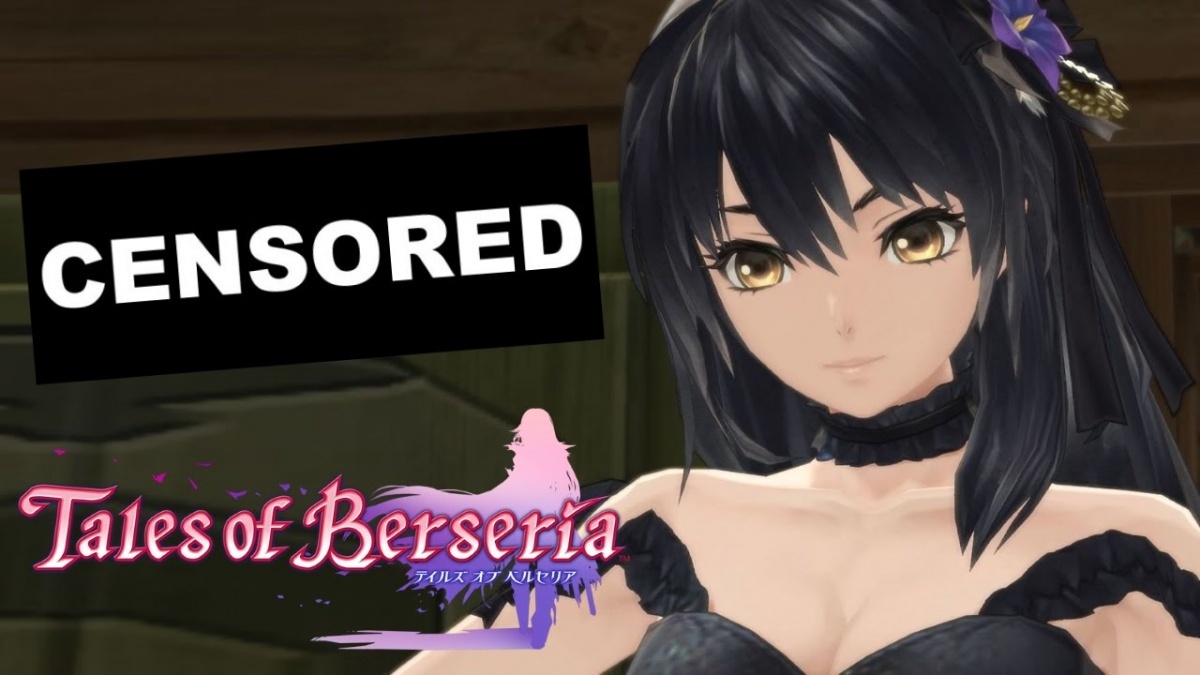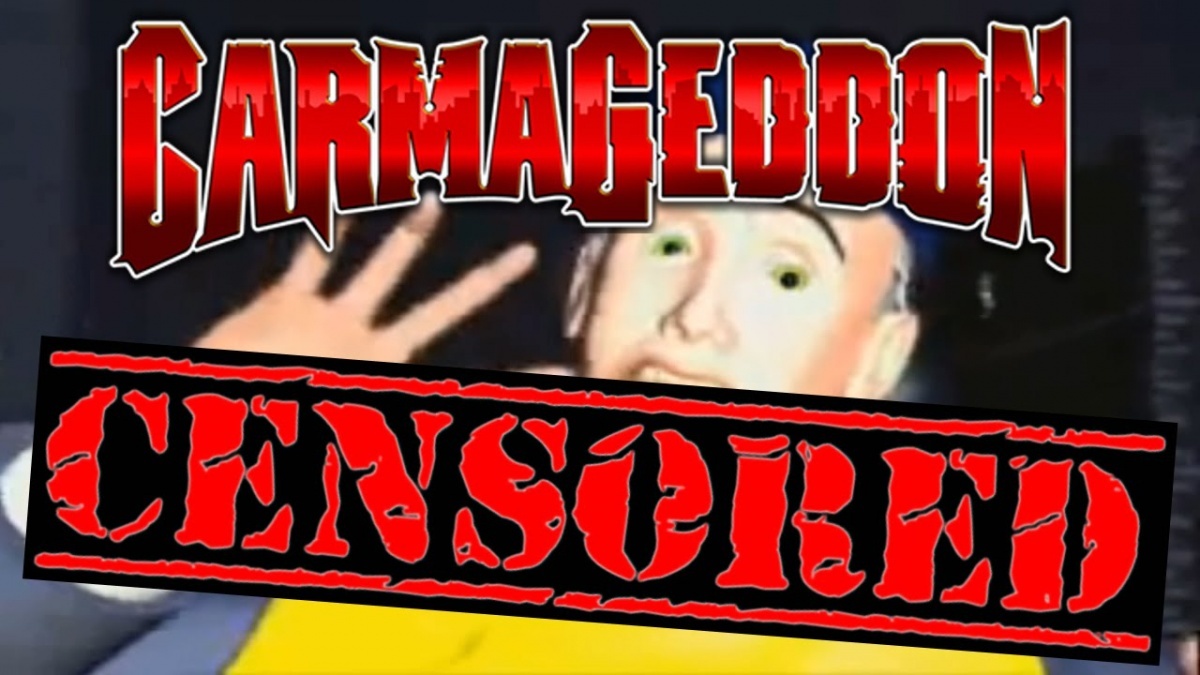
Be warned, while trying to stick to the tame, some examples may be unsettling. Censorship in games is not a new subject. It is not a minor subject, either, and is something that should always be on the forefront of every gamer's mind each time it comes up. Why? Well, it's a sensitive, yet immensely important, topic. There are many facets to explore and its worthwhile thinking about it, especially in this modern era. Before moving on, though, what exactly is being talked about?
Bandai Namco's upcoming adventure, Tales of Berseria, has come under some fire for a recent bout of censorship; namely that, in one scene, a child ends up being impaled by a certain character's sword. Some may immediately jump to the claim that this censorship is justified as it shows a child being murdered, while others may jump to its defence claiming things such as artistic integrity. The thing is, this isn't the first time the Tales] series has shown some gruesome stuff. In Tales of Graces f there is an early scene in which a young girl is outright impaled through and through by a monster. In Tales of Zestiria there is an early scene where an NPC is being eaten by a boss. These are hardly the only scenes of this sort that can be considered 'disturbing' and each Tales release seems to shoot for at least one. Heck, Tales of Xillia 2 quite literally has a huge plot element in the multiple impalements that happen. Why start fretting now, then?

Ever since the dawn of man, censorship has existed. Sometimes it's been political, sometimes cultural, sometimes religious, but always present; for example, the famous statue of David originally did not have its fig leaf, which was added later on in an effort to promote 'modesty.' The same can be said for many statues from that period and earlier eras, yet, at the same time, stuff like 'The Fall of Adam' was not adjusted. Why? What exactly is censorship and when, if ever, should it apply to games?
In its most basic form, 'censorship' is the practice of examining a piece of material to remove unacceptable parts. In some cases this can be a good thing, such as keeping military secrets from falling into the hands of an enemy. In some cases this can be a bad thing, such as keeping military secrets documenting experimentation on a country's citizens from becoming public. Both are plausible and can be debated. For games, censors have basically existed right from the get-go, with many things being censored, thusly making it harder to find. Some prime examples are things like Carmageddon, which was censored in certain countries until the pedestrians that the player was supposed to run over were replaced with zombies, or the airport scene in Call of Duty where the player instigates a terrorist attack upon an airport. Violence against children is a very common one, with children in games often either being invulnerable to damage, de-spawning whenever the player goes hostile, or both. Adult content is another favourite target, with even the slightest bit often catapulting a game to a Teen (15) or Mature (18) rating regardless of its severity. One could easily have a baby-friendly game suddenly be pushed behind the 'adults-only' wall for one or two poorly (or well-chosen, depending on how you view it) words.

Is it right, then? Is it okay to cover up a scene or two in the name of indecency when they're not major things at all? Is it okay to censor a scene of child violence in a game series where young children are frequently playable characters? Is it right to cut a level based on a terrorist attack in a nation where such a thing is a sensitive topic? It's not an easy question to answer.
Why isn't it easy? Well, the world isn't an easy place to live in; for instance, in the anime Excel Saga there is one particular scene in which the main character, Excel, mentions having pumped gas into a subway station. To someone outside of Japan this probably wouldn't even be worth listening to on the whole, yet to someone inside this sort of thing was bad enough to merit having it censored. Why? Well, in 1995 Japan was the target of a terrorist attack where several people belonging to the cult 'Aum Shinrikyo' released sarin gas on a subway train killing 12, badly injuring 50, and causing vision problems for approximately 5,000 others. For those living in the United States, a level depicting a plane crashing into a tower might ruffle some very understandably tender feathers due to the 9/11 terrorist attacks, but to a gamer in Australia it might not make any sense at all. Various cultures view various things as acceptable, so it makes perfect sense that a game developed in Korea might do or say something that a gamer in France might find morally repulsive without intending to repulse the French gamer. After all, it's a Korean game developed by Koreans with, at most, a few French people to test it. As a result, certain things throw up warning signs.
Sometimes it may be acceptable, or at least understandable, as to why it might be censored. Depicting an under-aged character in certain manners, for example, may be fine in one culture but completely unacceptable in another. Other times it may be more of hysterical moral guardians crying out that their sweet child has been irredeemably corrupted and condemned to a life of crime because the child snuck in a mature game with content the parent didn't realise was present. It can be many things.

There are also many ways to address the situation, from utilising mods/patches to restore the censored content, refusing to buy the censored games, using workarounds to buy the uncensored version, write-in campaigns, or just acceptance for those whom oppose it. For those in favour, it's important to remember that, even if censoring, something can be justified it's a narrow line between 'removing content for the betterment of all' and 'removing content just because I dislike it.' It may be easy to point to something like Grand Theft Auto as an example of what should be censored, but where does it end with other titles?
However, the proper response should never be to run immediately to either enforcement or condemnation. There may be a good reason why something is censored. The reason why something is censored might make sense to you but seem utterly foolish to everyone else. This isn't an earnest desire either way but pure childish pettiness that speaks poorly of both sides. Even if anyone was to claim censorship is bad, they can certainly agree that, due to culture, certain things are acceptable and certain things are not. Would you rush to the defence of a game marketed to toddlers named 'Teaching Typing Through Torture' in which a young kid is meant to learn how to type by pressing the keys to pull out innocent victims teeth? Most would probably agree that such a thing is deserving of being at least moved up to a 'not for babies' rating. On the pro-censorship side, would you gladly condemn a game like Mario Teaches Typing because it 'endorses violence' because Mario stomps on a Goomba and Koopa while teaching kids? Neither response is mature or productive towards a final answer.

 Sign In
Sign In 22.12.2016
22.12.2016  Snowtwo
Snowtwo 
 Link to this post:
Link to this post:  Subscribe to this topic
Subscribe to this topic Features
Features






 Top
Top

